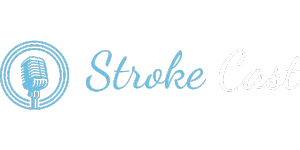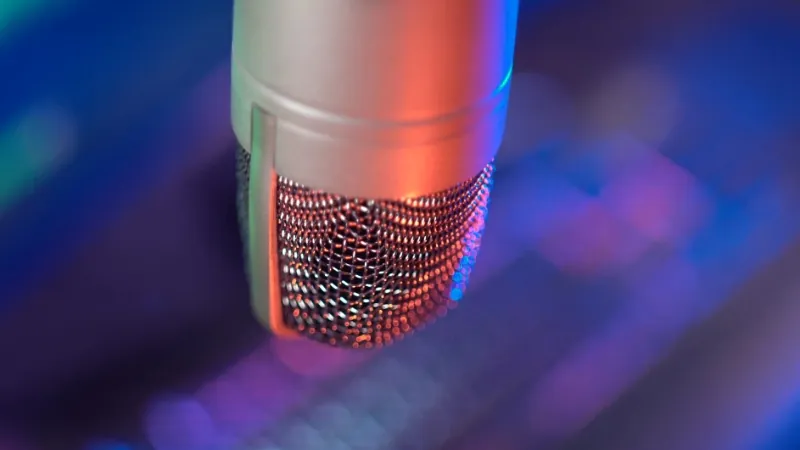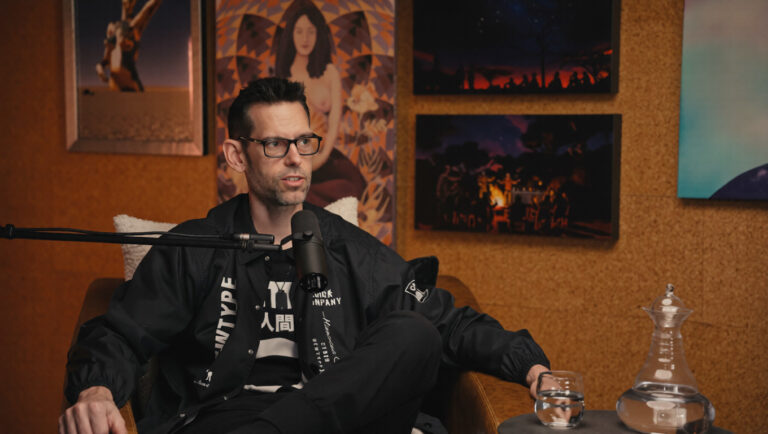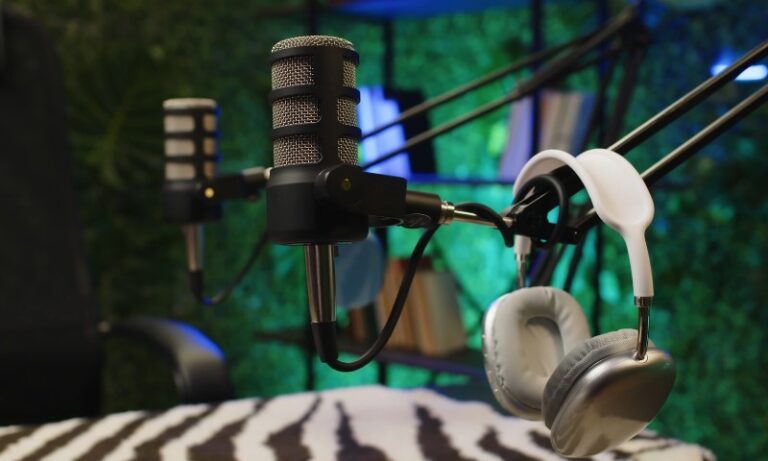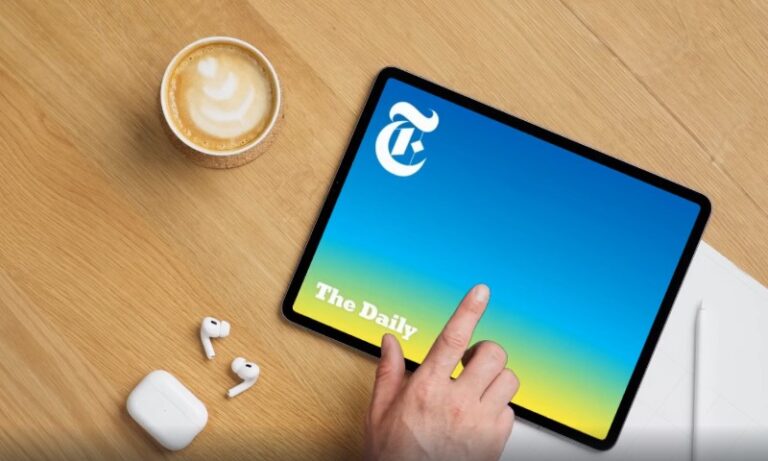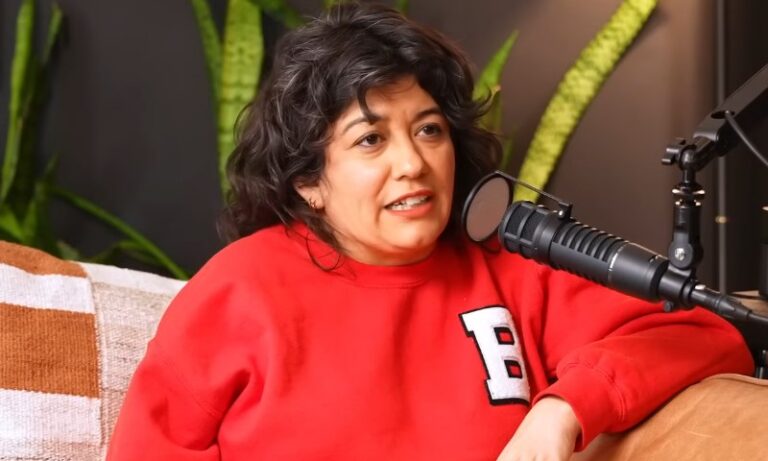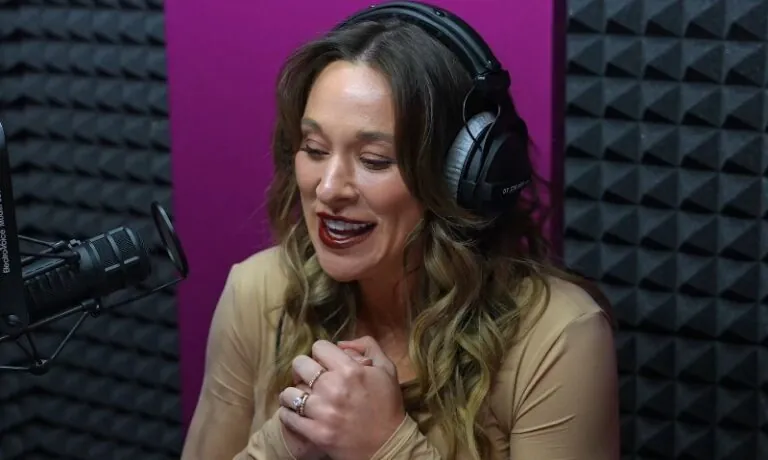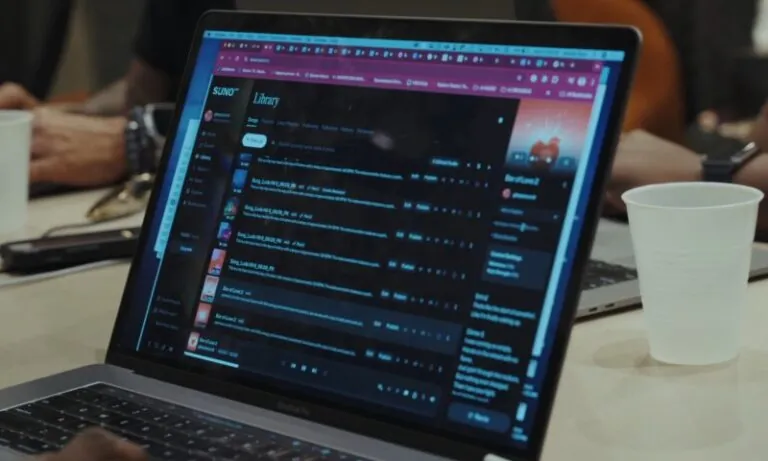Let’s be real, I’ve listened to a lot of podcasts. Like, “I-can-name-hosts-faster-than-my-own-family-members” level.
And over the years, a few have done way more than just entertain me on a commute or give me trivia to casually drop at brunch. Some of them honestly rewired how I see the world.
That’s what this list is about.
Not the flashiest podcasts. Not the funniest. But the ones that changed things, public conversations, voting behavior, policy debates, even how we think about food or history or justice.
These are the shows that didn’t just land with listeners, they rippled out into classrooms, courtrooms, corporate HR trainings, and late-night kitchen table debates.
And if I had to pick a favorite? It’d probably be You’re Wrong About. That show didn’t just correct the record, it made me realize how easily we absorb garbage narratives without questioning them.
It’s kind of humbling. But that’s the power of a good podcast. You go in for a story, and suddenly you’re rethinking everything from Nancy Reagan to the food pyramid.
Table of Contents
Toggle1. The Daily — The Political Compass for Millions
- Creator: The New York Times
- First aired: 2017
What sets The Daily apart isn’t just the production quality, though it’s sharp — it’s how seamlessly it keeps pace with breaking news while giving it depth and context. Instead of rushing to the hot take, it slows things down just enough to make sense of fast-moving headlines.
That was especially clear during the 2020 presidential election and again when the Dobbs decision leaked in 2022. Where most news outlets focused on the chaos, The Daily leaned into clarity, often walking listeners through legal frameworks, historical context, and who stood to gain or lose.
One memorable stretch? The week following the Supreme Court’s reversal of Roe v. Wade. The podcast ran back-to-back episodes unpacking what the decision meant, how it would play out state by state, and what it could mean for other rulings.
That level of narrative, combined with direct interviews and sound-rich storytelling, gave listeners a sense of control in a chaotic news cycle. It didn’t just explain what happened, it often helped shape how people emotionally and politically responded.
2. Serial (Season 1) — The Gateway Podcast That Sparked a Movement
- Creator: Sarah Koenig
- First aired: 2014
Serial was lightning in a bottle — true crime, but told with so much nuance and pacing that it felt closer to literature than a police report. Sarah Koenig took a single case — the 1999 murder of Hae Min Lee — and slowly peeled back the inconsistencies in the investigation and trial of her ex-boyfriend,
Adnan Syed. Over 12 episodes, listeners heard not just court transcripts and interviews, but Koenig’s own evolving thoughts. That openness made it impossible to passively consume. You had to think. You had to question what you believed about guilt, innocence, and how our legal system functions.
Beyond the buzz, Serial pushed real-world change. Legal scholars used it in classes. Innocence Projects saw a rise in interest.
Adnan’s case got reopened. But the bigger shift? People started realizing that wrongful convictions weren’t just rare anomalies; they were systemic.
It turned podcast listeners into amateur detectives, yes, but also into citizens more skeptical of how justice is served. Even a decade later, that season is still referenced as a cultural pivot point for criminal justice reform awareness.
3. You’re Wrong About — Flipping the Narrative, One Misconception at a Time
At first glance, it’s a podcast about correcting history. But once you dig in, you realize You’re Wrong About is actually about power — who has the authority to tell a story, and why we buy it.
Sarah Marshall and Michael Hobbes brought charm and a sharp sense of irony to each episode, but beneath the banter was rigorous research.
Whether it was reexamining the media’s takedown of Britney Spears or exploring the moral panic around Dungeons & Dragons, the podcast pulled back the curtain on how public narratives are constructed and distorted.
The real magic? It made people question not just old scandals, but their assumptions.
The episodes on the war on drugs and “stranger danger” didn’t just reframe history — they showed how fear and misinformation became policy. Teachers started incorporating the show into lesson plans. Parents rethought how they talked to kids about safety.
Listeners didn’t walk away with neat answers, they walked away more skeptical, more curious, and far less likely to accept the headline version of any story.
4. Code Switch — Changing the Way Race Is Talked About
The Code Switch podcast is coming! Get a sneak peek! https://t.co/KggYojKcFC pic.twitter.com/MuQ0OtvIMe
— NPR’s Code Switch (@NPRCodeSwitch) May 10, 2016
Code Switch entered the podcast scene long before corporate America suddenly decided it needed “diversity content.” It was built by journalists of color, for an audience tired of surface-level coverage on race.
The show tackled messy, layered topics — like why “Latino” isn’t a race, or how Asian Americans have been both marginalized and weaponized in political rhetoric — with both care and confidence. And crucially, it didn’t talk down to its audience or flatten complex identities into buzzwords.
After the murder of George Floyd, the show saw a meteoric rise in downloads. It became required listening for people trying to educate themselves, especially those who had previously felt like outsiders to racial justice conversations.
Code Switch didn’t offer easy answers, but it gave language to lived experiences and helped frame race as something woven into daily life, not just a news item. That influence spread into education, HR departments, and even pop culture critiques, changing how race is discussed both privately and publicly.
5. Maintenance Phase — Cutting Through the Wellness Industry BS
There’s something cathartic about hearing two smart, funny people dismantle everything you were taught about health and weight. Aubrey Gordon and Michael Hobbes approached the wellness industry with scalpel-sharp analysis and humor, taking apart decades of bad science, corporate manipulation, and fatphobia.
From dissecting the origins of the President’s Physical Fitness Test to explaining how diet companies rig studies to show results, Maintenance Phase helped listeners spot the difference between actual health and aesthetic obsession.
But it wasn’t just about calling out nonsense — it was about liberation. People emailed the hosts in droves, saying they’d thrown out their scales or finally felt okay buying clothes that fit now, not “after the weight loss.” The podcast didn’t just bust myths; it gave listeners tools to unlearn shame.
You now see its influence all over social media, where body neutrality and anti-diet culture have exploded in popularity. And it’s not a stretch to say that many people now approach food and fitness more kindly because of this show.
6. 1619 — Rewriting U.S. History from the Foundation
I recommended the 1619 podcast on #earbiscuits today. Please check out this illuminating work from @nhannahjones https://t.co/bvCDNYHezM
— Rhett McLaughlin (@rhettmc) January 20, 2020
Nikole Hannah-Jones’ 1619 project fundamentally shifted the way many Americans think about the nation’s founding. It argued that slavery wasn’t a footnote — it was foundational. That perspective ignited conversations in schools, workplaces, and politics.
Multiple states attempted to ban the curriculum that came out of the series, while others embraced it in updated history standards. More than any recent work of journalism, it turned history class into a battleground and brought structural racism into the mainstream of civic debate.
The ripple effects extended far beyond podcast listeners, affecting legislation, book bans, and academic funding.
It didn’t go unnoticed. The backlash — from school boards, politicians, and right-wing pundits — only underscored how deeply the podcast rattled the status quo. But for countless teachers, parents, and students, 1619 opened doors that had been shut for decades.
It became the centerpiece of school curricula in some districts and the target of bans in others. Either way, it forced people to reckon with how incomplete — and sanitized — the traditional American story had become.
7. The Joe Rogan Experience — Echo Chamber or Game Changer?
Rogan’s platform played a huge role in shaping pandemic discourse, particularly around vaccine skepticism, lockdown measures, and alternative treatments like ivermectin. His episodes with controversial guests — from virologists to conspiracy theorists — were cited by politicians and pundits alike.
Spotify’s $100 million deal with Rogan made it clear: this wasn’t just a niche show anymore. He reached people that traditional news outlets couldn’t. While critics raised alarms about misinformation, fans saw the show as a rare space for long-form, unscripted thinking.
Either way, Rogan influenced how millions evaluated public health, media credibility, and political bias.
Say what you want about Joe Rogan, and people do, but his show has reached most media companies would kill for. With episodes often stretching beyond three hours, it offers a level of unfiltered conversation that fans say allows for “real talk,” and critics argue leaves the door wide open for misinformation.
During the COVID-19 pandemic, that distinction became especially visible. His interviews with skeptics of the mainstream narrative on masks, vaccines, and lockdowns went viral and got cited by millions, including people looking to justify their doubts about science or policy.
8. Invisibilia — Rethinking Behavior, One Story at a Time
Happy #InternationalPodcastDay! How fitting that today’s episode takes us all the way to Romania…
The tale of two star-crossed friends divided by politics, culture, and powerful people trying to tear them apart. https://t.co/ShlltwoAC4
— Invisibilia (@NPRinvisibilia) September 30, 2021
Episodes like “How to Become Batman” and “The Power of Categories” weren’t just quirky stories — they reshaped how people thought about human potential, perception, and bias.
The show made psychological research personal by embedding it in real-life case studies: a man who navigated the world without sight like a bat, or a woman who cured her lifelong fear through virtual reality.
Listeners came away questioning their internal narratives and assumptions.
Schools, therapists, and even HR departments have used Invisibilia as a springboard for training and introspection.
Invisibilia didn’t go viral every week, but it stuck with people. Episodes explored everything from emotions as contagious phenomena to how expectations can literally alter someone’s potential.
It made psychology personal and digestible, often changing how listeners saw their own thoughts and actions. It asked the kind of questions that stick in your brain for days afterward, the kind you bring up at brunch and can’t stop mulling over.
9. Radiolab — When Science Meets Ethics and Blows Your Mind
Radiolab brought experimental sound design and layered storytelling to topics like CRISPR gene editing, abortion laws, and artificial intelligence. What made it transformative wasn’t just the info — it was the emotion.
One episode on the ethics of removing life support from premature infants sparked national discussion, and another about the “yellow rain” chemical weapons myth changed how people viewed both war reporting and scientific evidence.
By mixing facts with philosophical quandaries, Radiolab helped science break through to audiences who normally tuned it out.
Radiolab was never just about science facts. It was about asking weird questions like “What if the law treated animals as people?” or “How do we know what’s real?” and then using music, editing, and interviews to create an experience.
Listeners didn’t just come away informed. They often walked away changed, questioning what they thought they knew about morality, biology, or even time.
10. Pod Save America, Politics with Punchlines
The show wasn’t just political commentary, it became part of the progressive movement’s digital infrastructure. The hosts regularly featured candidates, demystified down-ballot races, and partnered with get-out-the-vote organizations. They made civic action feel both possible and cool, which was no small feat for a generation drowning in cynicism.
The show helped energize voter turnout in both the 2018 and 2020 elections and offered real-time analysis that often beat traditional punditry in both accuracy and accessibility.
If you’re under 40 and voted in the midterms, there’s a decent chance Pod Save America played a role in that. The show mixes political strategy, grassroots organizing tips, and unapologetic snark.
What made it powerful? It gave people agency. It wasn’t just commentary, it gave listeners specific things to do: phone banks, donation links, legislation tracking. Suddenly, politics didn’t feel like something happening to you.
11. The Ezra Klein Show, Brain Food for Policy Nerds
Ezra Klein created a rare space where long, deep policy discussions actually worked as entertainment. His interview with political scientist Lee Drutman on the breakdown of the two-party system, or with AI ethicists on the risks of unchecked machine learning, didn’t just inform, they sparked wider essays, debates, and even policy memos.
Guests ranged from Alexandria Ocasio-Cortez to conservative thinkers like Ross Douthat. That ideological mix challenged confirmation bias and encouraged a more layered kind of political conversation, especially for young professionals and graduate students.
Ezra Klein doesn’t just ask questions. He sits in them, lets them breathe, and brings on thinkers who actually make you think.
12. Nice White Parents — A Gut Check on Education and Privilege
The podcast peeled back decades of education policy to show how white parental influence, even when well-intentioned, can disrupt integration efforts and equity-based reforms. One unforgettable storyline followed a newly proposed dual-language program derailed by affluent parents with outsized political power.
After the show aired, school boards in cities like New York and Los Angeles began revisiting how parent organizations are structured.
Activists and educators cited the series in efforts to redesign school funding formulas and admissions processes.
This one hit nerves. It tackled how well-meaning white parents, often liberals, inadvertently warp school systems through influence, donations, and inertia.
It wasn’t just a story about schools. It was about race, class, and who gets to shape public institutions. Afterward, you saw conversations pop up everywhere about how “progressive” values often stop at the schoolhouse door.
13. Freakonomics Radio, Economics as Everyday Behavior
By applying economic logic to everyday life, like dating, cheating, or naming your baby, Freakonomics made abstract concepts tangible.
It helped listeners see the hidden incentives behind behavior and policy. Policymakers and business leaders often reference episodes when trying to explain behavioral nudges or the unintended consequences of regulation.
In classrooms, it’s become a staple for teaching high school and intro-level econ, replacing dry textbooks with questions that stick.
“Why do we leave the toilet seat up?” “Does money make you mean?” Freakonomics made economic theory feel personal and fun.
It helped listeners apply behavioral economics to real life, whether negotiating a raise or analyzing crime stats. The show’s power came from its knack for making you feel smarter and more curious with every episode.
14. On Being with Krista Tippett, Soulful Conversation, No Preaching
Tippett’s gentle interviewing style created a space for intellectuals, poets, and scientists to talk about the deeper stuff, purpose, grief, and joy, without sounding preachy. Her guests ranged from Buddhist monks to Christian ethicists to artists like Mary Oliver.
The show gained a strong following among both spiritual seekers and secular thinkers. It’s been cited in therapy sessions, university ethics classes, and even interfaith community groups.
During global crises like the pandemic, it served as a kind of collective balm, helping people wrestle with big questions without rushing to neat conclusions.
If most podcasts sprint, On Being strolls. Each episode feels like a quiet, humane sit-down with thinkers, poets, and philosophers discussing what makes life meaningful.
It’s one of the few shows that successfully created space for public contemplation. People who felt disenchanted with organized religion often found new ways to explore belief and purpose here.
15. The Dropout, One Story, Many Lessons
By unraveling the Theranos scandal in a tight, story-driven format, The Dropout brought Silicon Valley’s “fake it till you make it” ethos under serious scrutiny. The show helped shift the public from awe to skepticism when it came to tech CEOs, particularly those marketed as disruptors.
Elizabeth Holmes’ fall wasn’t just about fraud; it became a lens for viewing the dangers of venture capital hype, the tokenization of women in tech, and the failure of boardroom oversight.
The podcast reached listeners well beyond business circles, influencing how startup culture is discussed at universities, investment firms, and even in federal courts.
The Elizabeth Holmes/Theranos saga was already wild, but The Dropout told it in a way that stuck. It humanized the fall, broke down the business lingo, and made listeners think twice about glorifying startups, “girlboss” narratives, and VC-backed hype.
The podcast helped reframe the way we talk about women in power without defaulting to stereotypes or excuses. It wasn’t just about Holmes, it was about who we believe, and why.
Conclusion
There’s a lot of noise out there. Podcasts come and go, and for every thoughtful show, there are ten with a mic and no point. But the ones on this list? They stuck. Not just in charts or downloads, but in people’s minds.
They made audiences question things they’d taken for granted. Some sparked policy changes. Some got people out voting. Some just gave someone the language to talk about their body, or race, or fear, or grief in a new way.
And yeah, I’m biased, I love this medium. There’s something uniquely powerful about hearing a voice in your ear, week after week, inviting you to think differently. It’s not a lecture. It’s not homework. It’s a conversation. It’s intimacy. Its impact.
I don’t think it’s an exaggeration to say that podcasts have changed how we change our minds. And the ones above? They’ve done it better than most.
So, what’s the podcast that changed your mind?
Related Posts:
- How to Legally Talk About Sensitive Issues in Your Podcast
- Crime Junkie: How Two Women Changed Podcasting
- Top 18 Must-Listen Podcasts Available on Amazon Music
- Scripted vs. Unscripted Podcasts - The Debate
- 10 Best Podcasts for Learning from the Bold and the Brave
- Top 10 Podcasts to Keep You Entertained on Your Next…
